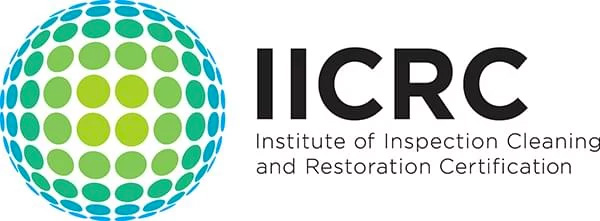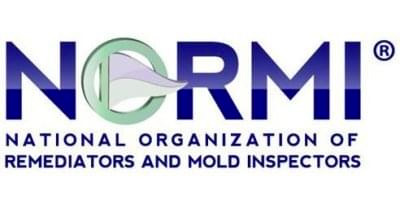Can an Air Purifier Help With Mold in Your Home?
Key Takeaways
- Air purifiers help reduce airborne mold spores, improving air quality and making breathing easier, especially for individuals with allergies or respiratory issues.
- Air purifiers do not eliminate mold growth on surfaces or address moisture issues, which are the root causes of mold.
- Effective mold control requires a comprehensive approach that includes air purification, moisture management, proper ventilation, and, when necessary, professional mold remediation.
Mold is a serious problem that can negatively affect both your home and your health. It thrives in damp environments and spreads through tiny mold spores that float in the air. If left unchecked, mold can cause structural damage to your home and lead to various health issues, particularly for those with respiratory conditions or allergies.
Many homeowners look for solutions to manage mold growth, and air purifiers are often considered as a possible option. While air purifiers can help in certain ways, they are not a complete solution for eliminating mold.
It is important to understand how air purifiers work, their limitations, and what additional steps are necessary to effectively control mold in your home. Keep on reading this blog by Markham Services to learn more about how air purifiers can help with mold in your home!
To get a clear picture of your homes indoor air quality call us today at 727-216-7492 or 863-213-5022.
Call for an appointment
Understanding Mold and Its Health Risks
What Is Mold and Why Does It Grow?
Mold is a fungal organism that thrives in environments with high humidity, warmth, and excess moisture. It thrives in areas with moisture, such as bathrooms, basements, kitchens, and places with water damage. Mold spreads by releasing tiny spores into the air, which can land on surfaces and grow if conditions are favorable.
Mold can develop on a variety of materials, including wood, drywall, carpeting, and even furniture. It often appears as black, green, or white spots and can have a musty odor. Without proper moisture control and remediation, mold can spread quickly and become a persistent problem in homes.

Health Effects of Mold Exposure
Exposure to mold can cause a range of health problems, particularly for people with allergies, asthma, or weakened immune systems. Mold spores can irritate the respiratory system, leading to symptoms such as coughing, sneezing, wheezing, and shortness of breath. Some individuals may experience itchy eyes, skin rashes, or sinus congestion.
Prolonged exposure to mold can worsen pre-existing respiratory conditions and, in severe cases, lead to more serious health concerns. Infants, elderly individuals, and those with chronic illnesses are more susceptible to mold-related health issues. Since mold spores are airborne, they can easily spread and affect indoor air quality.
How Air Purifiers Help With Mold Control
Filtration of Mold Spores
Air purifiers function by capturing and removing airborne contaminants, including mold spores, from indoor spaces. High-efficiency particulate air (HEPA) filters are particularly effective at capturing mold spores and preventing them from circulating in the air. This helps reduce the number of mold spores that could settle on surfaces and grow.
Reduction of Allergens
Mold spores are a common trigger for allergies and respiratory issues. Air purifiers can help improve indoor air quality by reducing allergens in the environment. By trapping mold spores, dust, pet dander, and other airborne particles, air purifiers can make breathing easier for individuals who are sensitive to allergens.
Slow the Growth of Mold
While air purifiers do not kill mold, they can help slow its spread by continuously removing mold spores from the air.

This can be particularly useful in homes with minor mold issues, as it reduces the likelihood of spores settling and creating new mold growth. Air purifiers must be used alongside other mold control measures to be truly effective.
To get a clear picture of your homes indoor air quality call us today at 727-216-7492 or 863-213-5022.
Call for an appointment
Why Air Purifiers Alone Are Not Enough
Hidden Mold
Air purifiers can only filter mold spores from the air, but they do not eliminate mold that is already growing on surfaces. Mold often hides in walls, ceilings, carpets, and other materials where an air purifier cannot reach. If mold is growing behind walls or under flooring, an air purifier will not be able to remove it.
Moisture Problems
Mold requires moisture to grow, and an air purifier does not address the root cause of mold: excess moisture. If humidity levels remain high, mold will continue to thrive regardless of air filtration. Proper moisture control, such as fixing leaks and improving ventilation, is essential for long-term mold prevention.
Effective Mold Prevention: A Holistic Approach
Find and Fix Moisture Issues
The first step in mold prevention is identifying and fixing sources of moisture. This includes repairing leaks in pipes, roofs, and windows, as well as addressing any water damage. Even small leaks can create the damp conditions necessary for mold growth, so it is important to address them promptly.
Improve Ventilation
Good airflow helps reduce moisture buildup in indoor spaces. Increasing ventilation by using exhaust fans in bathrooms and kitchens, opening windows, and ensuring proper air circulation can help keep humidity levels low. Basements and attics should also be well-ventilated to prevent mold growth.

Use Dehumidifiers
Dehumidifiers help regulate indoor humidity levels and reduce excess moisture in the air. Keeping indoor humidity below 50 percent can significantly lower the risk of mold growth. Dehumidifiers are especially useful in humid climates or in rooms prone to dampness, such as basements and laundry rooms.
Remove Mold-Infested Materials
If mold has already developed on porous materials such as drywall, carpeting, or insulation, these materials may need to be removed and replaced. Mold can penetrate deep into these materials, making it difficult to clean completely. In severe cases, professional mold remediation may be necessary to ensure complete removal.
Professional Mold Solutions
While air purifiers can help manage mold spores in the air, they are not a substitute for professional mold removal services. If mold is widespread or hidden in your home, expert assessment and remediation are necessary. Markham Services provides thorough mold inspections, moisture assessments, and effective mold remediation solutions.
Mold problems require more than just filtration; they need proper identification and elimination at the source. Markham Services specializes in detecting mold growth, addressing moisture issues, and providing long-term solutions for mold control.
Whether you are a homeowner or a landlord, professional mold remediation can help protect your property and ensure a safe living environment.
Bottom Line
Air purifiers can be a helpful tool in reducing airborne mold spores, improving air quality, and minimizing allergens in your home. They do not, however, eliminate mold that is growing on surfaces, nor do they address the root cause of mold.
Mold prevention requires a combination of air purification, moisture control, ventilation, and removal of contaminated materials.
For complete mold control, professional help may be needed. Markham Services provides expert mold inspections and remediation, ensuring that mold problems are properly addressed at their source.
If you are dealing with mold in your home, contact Markham Services today to schedule an inspection and take the first step toward a healthier indoor environment.
To get a clear picture of your homes indoor air quality call us today at 727-216-7492 or 863-213-5022.
Call for an appointment


